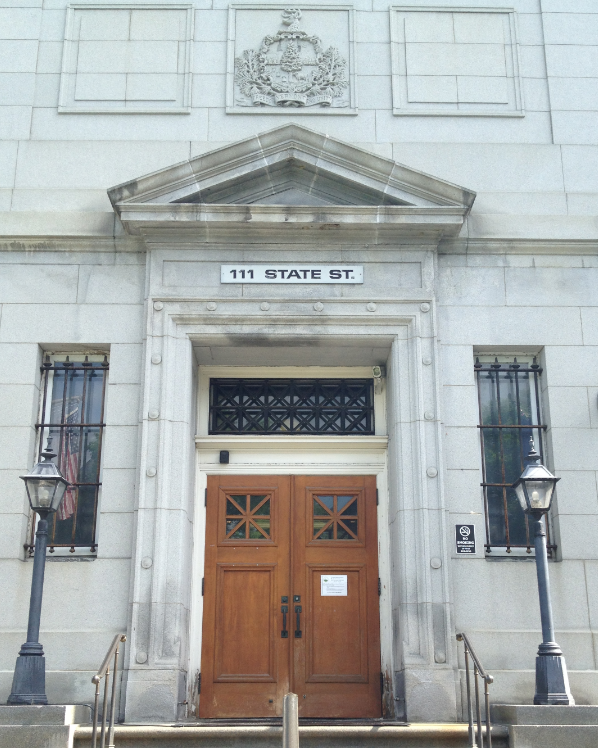©2009- 2011 Allan R.Keyes, Esq., all rights reserved
Agency.
Constitutional law.
First Amendment rights: no prosecution for disturbing the peace without proof of substantial disruption of a lawful assembly.
State v. Colby, 2009 VT 28 (Johnson, J.)
Employment law.
Unfair labor practice finding affirmed by divided court. Vermont State Employees Assn. v. State, 2009 VT 21 (Skoglund, J.) (Burgess, J. and Chief Justice Reiber, concurring in part and dissenting in part.)
Wrongful discharge: False press report of reasons for discharge is not “stigma” caused by employer implicating liberty interest in public employment.
Herrera v. Union No. 39 School District, 2009 VT 35 (Burgess, J.)
Evidence.
Evidence of other property values properly excluded. Eminent domain award affirmed. Harrington v. Vermont Agency of Transportation, 2009 VT 25 (mem.)
Evidence. Daubert. Improper admission of the DNA evidence was harmless.
State v. Tester, 2009 VT 3 (Dooley, J.)
Family law.
Education savings funds are marital property Drumheller v. Drumheller, 2009 VT 23 (Dooley, J.)
Insurance.
Beneficiaries of Trust are the insureds where Trust is the named insured. Off-premises dog bite arose “with respect to” premises for purposes of homeowner policy because dog lived there.
Northern Security v. Doherty, 2009 VT 27(mem.)
Successful UIM plaintiff not entitled to attorney fees.
Ovitt v. American Home, 2009 VT 26 (mem.)
Liquor regulation.
Prohibition on “loitering” not vague as enforced against bar that allowed an intoxicated patron to dance. In re Rusty Nail Acquisition, Inc., 2009 VT 68 (Burgess, J.)
Real Estate and Land use.
Zoning ruling affirmed against pro se. Summary judgment procedure is constitutional. In re Deer View LLC Subdivision Permit, (2009 VT 20 (mem.)
Act 250 findings re: no “substantial change” affirmed. In re Hale Mountain Fish and Game Club, Inc., 2009 VT 10 (mem.)
ACT 250: farming exemption does not apply to Act 250 subdivision jurisdiction; or to preexisting permit requirements. In re Eustance Act 250 Jurisdictional Opinion, 2009 VT 16(Dooley, J.)
Zoning: Erroneous conditional use application vested rights to a permitted use that was not applied for, notwithstanding later zoning amendment. In re Sisters and Brothers Investment Group, 2009 VT 58 (Reiber, C.J.)
Municipal Charter trumps statute: utility forced to pay for undergrounding, even if it serves merely aesthetic purposes. City of Burlington v. Fairpoint Communications, 2009 VT 59 (Reiber, C.J.)
Wind Generation Facility Approved. In re UPC Vermont Wind LLC, 2009 VT 19 (Burgess, J.)
Procedure and Jurisprudence.
Appeal; missing record; “may” means “must.” Although the use of “may” in Rule 10(c) appears permissive, “an appellant who fails to seek preparation of a substitute statement of trial proceedings forfeits any claim that he or she has been prejudiced by the absence of a transcript.” State v. Bain, 2009 VT 34 (Reiber, C.J.)
Moot Land Use Appeal. In re Keystone Development, 2009 VT 13 (mem.)
Open meeting law violations cured in open session. Katz v. South Burlington School District, 2009 VT 6 (mem.)
Claim preclusion bars claim that easement can be moved because it is an easement by necessity, not a prescriptive easement. Carlson v. Clark, 2009 VT 17 (Johnson, J.)(Dooley, J., dissenting.)
Collateral Estoppel. In re P.J., 2009 VT 5 (mem.)
Depositions at trial: prejudicial error to admit video “preservation” deposition of expert w/o showing witness unavailable; even though party did not object at time of deposition. Nichols v. Brattleboro Retreat (2007-310) (23-Jan-2009) (Reiber, C.J.; Burgess, J., dissenting.)
Remittitur standards for excessive verdict; late expert; failure to preserve issues not “plain error”; standard of review of Rule 50 motions where charge is agreed to.
Follo, v. Florindo, 2009 VT 11 (Burgess, J.)
Prisoners Rights.
Hearing needed to feed inmates Nutraloaf. Borden v. Hofmann, 2009 VT 30 (Skoglund, J.)(Reiber, C.J., & Burgess. dissenting,)
Punitive damages.
“Malice” standard clarified as not requiring personal ill will in all cases. New trial on amount of punitive damages granted where malice proven as a matter of law, even though plaintiff made no Rule 50 motion.
DeYoung v. Ruggerio, 2009 VT 9 (Dooley, J.)
Punitive damages should have been awarded for actual fraud.
Follo v. Florindo, 2009 VT 11(Burgess, J.).
Statute of limitations.
Torts.
Reckless disregard of truth is enough to show fraud.
Follo v. Florindo, 2009 VT 11 (Burgess, J.)
Wrongful death of a cat: no damages for lost companionship or emotional distress.
Goodby v. Vetpharm, 2009 VT 52 (Burgess, J.)
Trusts and Estates.
Disclaimers are irrevocable, but are voidable for duress, coercion, undue influence incompetence, or other equitable basis. Burden of proof shifts in “suspicious circumstances” where attorney represents both sides. Carvahlo v. Estate of Carvahlo, 2009 VT 60 (Dooley, J.)
Beneficiaries of Trust are the insureds where Trust is named insured, because trust can not be sued. Northern Security v. Doherty, 2009 VT 27(mem.)
Workers Compensation.

